|
|
Last Saturday marked the final day of the Bay Area Public School’s weeklong Summer School, the theme of which was Information. We started the day with a Cryptoparty – hands-on workshops to assist folks in generating key signatures, using encrypted and off-the-record chat, and other tools such as Tor and Redphone – this went really well, with lots of folks leaving having learned new skills or solved a particular problem, and all culminated in a delightfully geeky key-signing party.
There were a bunch of great talks:
* My housemate, Craig Rouskey, gave an amazing presentations on his citizen science project to eradicate gonorrhea using phage therapy.
* Marc Juul and I presented on our project to build a mesh network in Oakland!
* The lovable Danny O’Brien spoke about the Electronic Frontier Foundation’s work in fighting for digital civil liberties and why privacy and digital security are important.
The day culminated in a panel with Moxie Marlinspike (of Whisper Systems), Danny, Bill from the EFF, Marc and myself, with the attendees participating in a Q&A.
THEN WE PARTIED. IT WAS AWESOME.
Notes and link to the livestream (mad props to JC!) are here: https://sudoroom.org/wiki/Cryptoparty/2013/August
We’re having the first of what will become monthly digital security workshops at Sudo Room this month. I’m excited to co-facilitate with some hella smart friends and learn along the way. Hoping to increase digital literacy through raising awareness of basic digital security hygiene.
Here’s some of the topics we’ll cover through hands-on workshopping:
* Why digital security is important
* Email encryption and GPG key-signing
* Mobile phone security
* Hard drive encryption
* Anonymous web browsing
* Network security
As we develop our workshopping skills, we’d like to tailor future Cryptoparties to various at-risk communities such as journalists and activists.
Link to the first event is here: https://sudoroom.org/events/digital-security-workshop/
See you there!
As I launch into week 5 of my work with the Open Technology Institute, I’ve begun to collaborate with a variety of groups, organizations and actors who constitute part of the emerging network of activity around developing community mesh networks and mapping applications in Oakland, California. The idea is to facilitate the grassroots (bottom-up) development of community mesh and mapping initiatives already ongoing in the East Bay, while playing a supporting role in documenting progress and connecting communities of interest.
sudo room is a young hackerspace in uptown Oakland dedicated to transparency, social justice and the creative application of technology. Sudo room is an open, inclusive space for free education and access to tools, as well as a venue for hosting local civic hacking, technology and learning initiatives. The groups and projects detailed below meet at and work regularly out of sudo room, which serves as an ongoing hub for events ranging from 72-hour hackathons to meetings between city projects and local hackers.
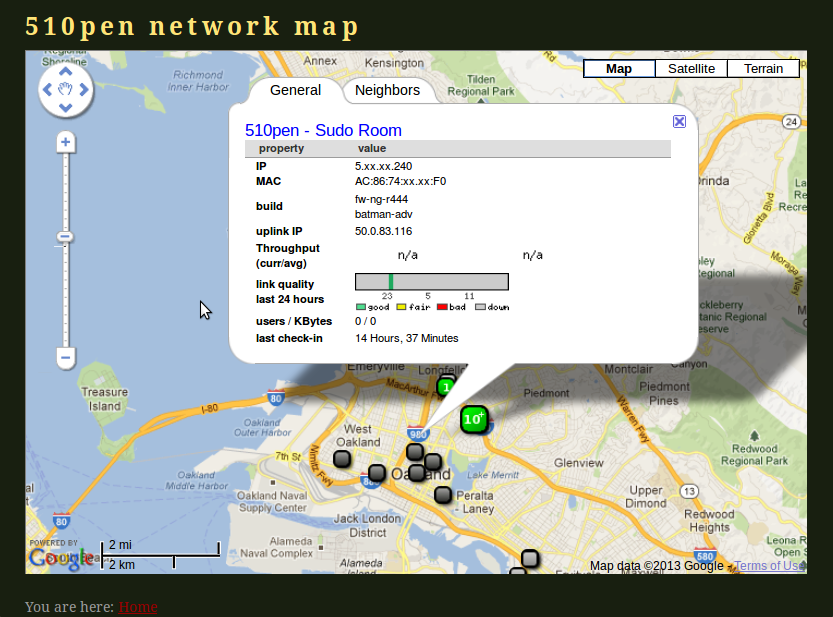 510pen Network Map, with currently-inactive sudo room node information displayed. 510pen is an East Bay community mesh network started by Mark Burdett in 2009. Currently, most of the nodes that were set up between 2009 and 2011 are inactive and in need of tech support. As of last week, we’ve begun meeting weekly at sudo room to discuss basic hows and whys of community mesh networks; wireless network hardware and software; how various community wireless efforts can cooperate and collaborate; models for organic growth, organization, support and sustainability; and how we can join forces with local residents, small businesses, non-profits, municipalities and anyone else to build a ubiquitous community mesh network.
Oakland Wiki is a LocalWiki repository for documenting the infrastructure, communities, and history of Oakland. Oakland Wiki hosts weekly edit-a-thons at the Oakland History Museum, where older residents / historians meet with the Oakland Wiki team to document the history of Oakland. Oakland Wiki is also hosting a civic data session at Open Data Day on February 23rd. The goal of this session is to provide a qualitative focus to an otherwise quantitatively-focused event, encouraging the contribution of information about city council, city policies, politics, and key figures in the city – essentially creating narratives around the past, present, and future of the city in an accessible and historically-rich manner.
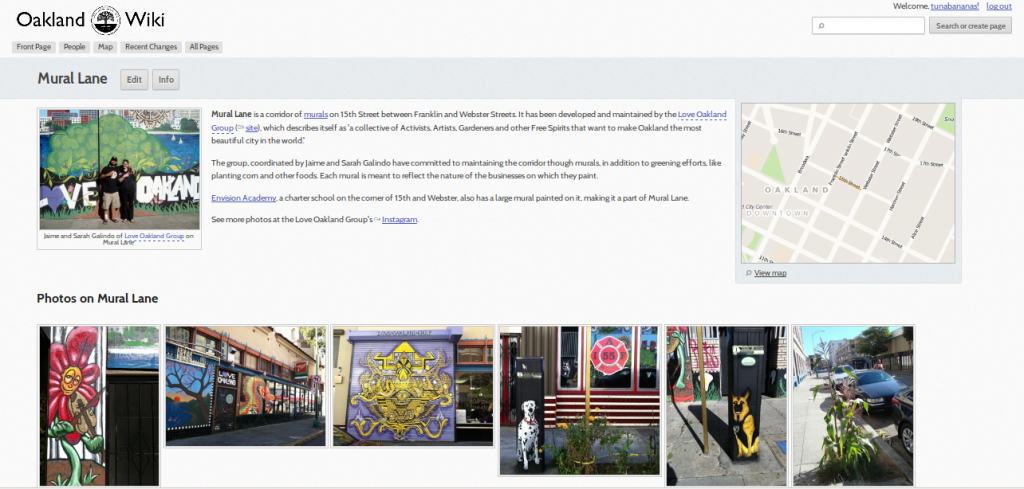 Oakland Wiki: Mural Lane The Open Oakland Digital Divide Group is a collaborative effort to coordinate the various organizations and individuals working on digital divide issues in Oakland. Spawned out of a session at CityCamp Oakland last December, the group consists of local citizens, technologists, and community change workers interested in creating solutions for effectively addressing the digital divide in Oakland. At our first meeting, held on January 24th, we articulated a few tangible goals to work on: individually reaching out to preexisting groups addressing digital divide issues to assess their needs and available resources; group field trips, visiting for instance a local swap meet where broken computers are donated to a group that turns them into working machines; and creating a central directory of digital divide resources for the city, including for instance a map of local, free tech meetups.
These are just a few of the most prominent players and projects as we move forward in developing relationships with community organizations and neighborhood groups. I will continue to transparently document my ongoing research progress at the Tidepools Wiki, and welcome your comments and contributions in the comments of this post!
Below are crib notes from my 4th American Anthropological Association meeting. Enjoy!
——
I’d like to begin by putting my story right on the table: I’m an anthropologist without an academy – a decision I made halfway through my Ph.D program for a variety of reasons that could be clustered under a personal inability to be complicit in a system that financially exploits young people for the purposes of paying off its debts to Wall Street.
Six months before Occupy began, I took my first leave of absence from my program, having befriended a group of wonderfully weird, idealistic brains up in the Bay Area. They were all super active at Noisebridge, a hackerspace in the mission open to the public. We were working on creating a live/work hackerspace in Oakland when I got pulled into working on OccupySF’s website at Noisebridge. I took my second leave of absence in the fall, swept headlong down the rabbit hole of revolutionary fervor.
Hackers and academics share a common challenge in contemporary culture: walled gardens. While internet freedom fighters rally against the walled gardens of Google and Facebook, activist-academics fight similar battles over the literal walled gardens of the Ivory tower and closed-access journals. From my vantage point, the solutions are the same in both instances: creating decentralized networks devoted to self-sufficiency, autonomous learning and grassroots, DIY community-building – making the very blueprints for such endeavors open source, aka freely available to the public.
To rewind a bit and cover any confusion over the oft-misunderstood term “hacker,” allow me to clarify: A hacker is not necessarily someone who maliciously breaks into computer systems – as mass media portrayals would have you assume. A hacker is a learning enthusiast, someone who is so curious as to take something apart completely in order to discover the fundamental components of a system. To “hack,” then, is to learn the process of creating something through doing it, and through modifying it to do what you want it to do. Put simply, in the words of McKenzie Wark (author of The Hacker Manifesto): “The slogan of the hacker class is not the workers of the world united, but the workings of the world untied.”
What I’m proposing, then, is “hackademia”. Hackerspaces and Occupy, like anthropology has always done, have created bridges for moving between worlds. It’s my adamant belief that the role of an anthropologist is simply that of storyteller. The very best we can do is transmute the mundane and otherwise hidden into vibrant and visible poetry; the worst we can do is keep our stories contained from those who have ears to hear.
So last night, I’m at the weekly meeting for the Oakland hackerspace I’ve been co-creating with a hodgepodge array of changemakers for the past year. I’d sent a callout for a ‘meta-organizational hacking’ meetup to take place an hour before the regular meeting. The goal was to identify where we could possibly refine our process, assisted by a Danish Kaos Pilot (the Kaos Pilots being a program focused around social entrepreneurship and leadership).
[SHOW SOME SLIDEZ]
This month marks the one-year anniversary of Sudo Room’s first meeting. Drawing from prior experience as well as the Hackerspace Design Patterns guide, we set up a mailing list, wiki, and IRC channel. We take notes together using an etherpad shared document, and post them on the wiki after each meeting. We decided to run by consensus without fastening ourselves to a binding agreement; iteration is invaluable, and we wanted to leave room for growth and change.
As a subculture, or even a ‘class’ according to Wark, hackers are remarkably meta-aware. Rather than genetic reproduction, hacker culture reproduces itself memetically. The hacker ethos of open source collaboration provides a roadmap, replete with tools for multi-maker storytelling. Our dedication to “copy / paste culture” means we have been committed from the first to the active practice of openness, transparency and collaboration – making this community an ideal laboratory for experiments in collaborative ethnography and multimedia storytelling. No confidentiality agreements needed when everyone is down to open source all the things!
While Sudo Room embraces an inclusive model of “hacking” that goes beyond hardware and software – to wetware, wearables, and even culture itself – there is certainly reason to resist confining ourselves to hacker culture alone. While not disregarding the admirable ethical core of lifelong learning, decentralization, and collaboration, the term is also connotative of an elite culture consisting of a privileged class of internet savants.
So I started hanging out in the #geekfeminism channel on IRC to get feedback on how we could create a more inclusive space. In turn, some geeky feminists started hanging out in the #sudoroom channel and contributing to some of the truly epic conversations we’ve been having around access and diversity.
There is something truly exciting about the interconnections between subcultures and the value of their hybridization in the spirit of creativity. What happens, for instance, when you combine botany buffs and hackers? You might get something like BioBridge, the amorphous DIYbio contingent of Noisebridgers, working on experiments in oyster mushroom growing and developing Arduino-controlled sensors for monitoring temperature and pH levels in kombucha brews and sourdough starters. Here you would also find overlap with Tastebridge’s Vegan Hackers night and perhaps some friendly Food Not Bombs volunteers.
While ‘collaborative ethnography’ as a form of ethnographic co-representation is not new – the idea was introduced in Writing Culture well before the turn of the millenium – the current milieu of rapid technological progress combined with what appears to be an earnest and timely revival of the commons is well-positioned for new experimental approaches to co-creating ethnography.
As resident cyberanthropologist (or, as others have called me, “that anthropologist who went rogue”), I find my skills uniquely situated to the task of creating replicable, transparent documentation, facilitating cross-cultural communication (particularly with groups representing marginalized voices), and providing meta-analysis of the culture we’re creating.
Some of these projects include:
-IRC bot, which anyone can contribute to, that logs channel conversations and enables bookmarking by participants in the chat.
-Autodocumentation Stations established in hackerspaces across the globe
-Connecting maker culture through a decentralized network of nodes denoting places, people, tools, projects, and blueprints.
One year ago, I stood up on a podium much like this one, making a callout to all the anthropologists present to take themselves down to the Occupy Montreal camp two blocks away from the posh convention center in which the AAAs were happening – closed to those without tickets costing somewhere between $200 and $500 – and to share their knowledge through outdoor teach-ins.
A lot has happened since that fateful weekend when I found myself more excited and welcome out there, sharing stories with haggard, weary occupiers, rolling cigarettes in the blustery wind not even thinking about just how cold my fingertips were. I remember walking through the publishing hall afterwards, in the polished corridors of the convention center, and being angry at how much everything cost, how it all just goes to the publishing companies anyway, how inadequate academia’s response has been to the liberation of information enabled by the internet and its dogged defenders
My aim in this talk is to illuminate a kind of “posthuman ethnography” that incorporates multimedia archives and community documents, the social organization of networked space, web-based communication tools and collaborative projects alongside the stories and shared experiences of individual members. In this sense, the end “product” is as collaborative, dynamic and diverse as its subject.
Originally posted on Shareable.
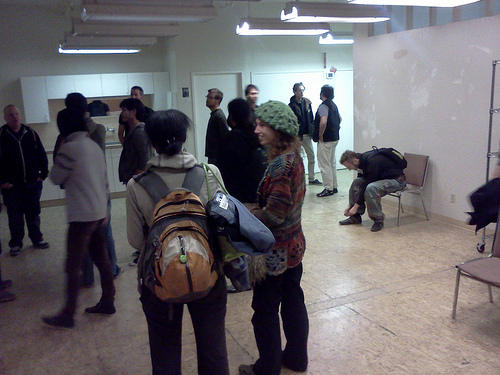
It's a sunny Saturday in downtown Oakland, and I'm touring a potential new space for Sudo Room, a DIY/creative/technical hackerspace I've been co-creating with a hodgepodge array of changemakers for the past year. As we're exploring the space, faces both familiar and fresh continue to trickle in. Ryan tells me we'll have to add air-filters to the common room. We could leave them out for now, but the fumes from soldering stations and laser cutters will make for a toxic hangout space and could contaminate the GMO bacteria growing in the next room over, causing a feud between the hardware hackers and wetware hackers: Carbon vs. silicon.
With visions of a federation of Bay Area DIY communities dancing in our brains, we'd invited nearly a dozen ethically aligned groups and individuals to check out the other rooms available for rent that surround the common space in the building we will be moving into this week. As such, our group today includes representatives from LOL, Ace Monster Toys, Noisebridge, and the Anarchafeminist Hackerhive.
To rewind a bit and cover any confusion over the oft-misunderstood term “hacker,” allow me to clarify: A hacker is not necessarily someone who maliciously breaks into computer systems – as mass media portrayals would have you assume. A hacker is a learning enthusiast, someone who is so curious as to take something apart completely in order to discover the fundamental components of a system. To "hack," then, is to learn the process of creating something through doing it, and through modifying it to do what you want it to do (a more detailed explanation can be found here). Put simply, in the words of McKenzie Wark (author of The Hacker Manifesto): “The slogan of the hacker class is not the workers of the world united, but the workings of the world untied.”
Among our group today, I count at least two biohackers, three writers, half a dozen software developers and web geeks, and a bevy of folks with interests ranging from 3D printing to building robots to starting a cooperative business. What unites us is a shared passion for citizen science and open access to tools and education – as well as a strong desire for community.
Events in the Life of Sudo Room
This month marks the one-year anniversary of Sudo Room's first meeting. From the beginning, we committed ourselves to the active practice of openness, transparency and collaboration. Drawing from prior experience as well as the Hackerspace Design Patterns guide, we set up a mailing list, wiki, and IRC channel. We take notes together using an etherpad shared document, and post them on the wiki after each meeting. We decided to run by consensus without fastening ourselves to a binding agreement; iteration is invaluable, and we wanted to leave room for growth and change.
The first Sudo Room meetings were held at an Oakland technology salon, Tech Liminal, every Wednesday night for more than 6 months. There, we incubated at somewhere between 5 and 12 folks per meeting, regularly overlapping with local techie non-profits who showed up to meet, organize, and hack on innovative civic projects. During this time we also created a collaboratively written mission statement:
Sudo Room is an open, non-hierarchical, collaborative community of humans, including tech developers, citizen scientists, activists, artists–and all combinations in between and beyond!–who are interested in and working towards social change. Our goal is to create the first inclusive, dedicated hackerspace in downtown Oakland, to share ideas and projects in citizen science, digital citizenship and literacy, environmental sustainability, community engagement, and self-government.
Sudo Room is committed to access, empowerment, transparency, and public/social good. Sudoers have a great diversity of interests and we emphasize respect and solidarity among ourselves and with others.
In May, we had a kickstarter/fundraiser (calling it a 'kickraiser') featuring a panel of Bay Area hackerspace representatives, including BioCurious (a DIY biotech space in Sunnyvale), HackerMoms (a hackerspace for moms in Berkeley) and The Crucible (a fine and industrial arts education space in Oakland) as well as the aforementioned (Noisebridge, LOL and Ace Monster Toys). Participants spoke on the topic of “Hackerspaces: The Necessity for Community Spaces Here and Everywhere.”
Come summer, we'd moved into a space – of sorts – an eclectic building also home to a psychic, an improv theater group, a nurse's training organization and a gun security instructor. We rented the box office and a tiny orange closet, giving us access to the large classroom space and two smaller back rooms. For better or worse, the improv theater folks hold auditions in the classroom every weekday evening. We have our meetings in the back room, but the open ceilings prevent any possibility of privacy – our voices often straining to be heard over the raucous hollering and silly sounds of the actors.
Despite the limitations of the space, we made the most of our momentum: We worked together to develop a governance structure, get a bank account, and forge a compact.
We also made the most of our location in uptown Oakland by hosting events for the monthly First Friday Art Murmur. For August's Art Murmur, we took the opportunity to stage a public announcement declaring our Intent to Exist – a requisite for obtaining a bank account without a federal tax ID – followed by an attempt to see how many hackers we could fit in our small box office space (the answer? 42.)
 Sudoer Tracy declares our Intent to Exist. Sudoer Tracy declares our Intent to Exist.
Sudo Room has also been in a courtship with Coyote Counter Collective, an Oakland-based workers' cooperative workshop and retail space for fashion designers, leatherworkers, and other kinds of functional, sustainable artistry. Our clothes-hacking night during September's Art Murmur featured electronic conductive thread and LEDs sewn onto donated clothing and homemade hats.
Just this week, Sudo Room voted unanimously to move into the larger space at 2141 Broadway St. We intend to hold a series of fundraisers throughout Oakland throughout the end of November and the first week of December to ensure we keep member dues as low as possible.
Toward a Federation of Bay Area DIY Communities
Our kickraiser helped us raise the funds we needed to get our initial space, but more importantly, it brought together other Bay Area hackerspaces in a spirit of cooperation, camaraderie and support.
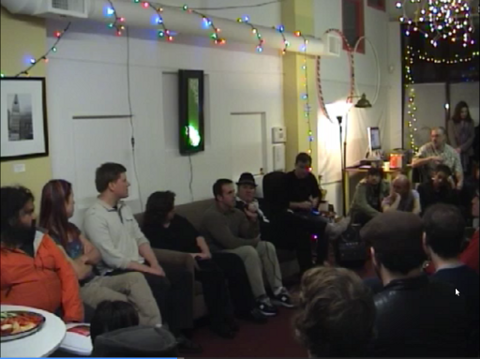
From left, Praveen Sinha (LOL), Jen-Mei Wu (LOL), David Rorex (Ace Monster Toys), Elisheva Sterling (Hacker Moms), Joe Jackson (BioCurious), Steven Young (The Crucible) and Mitch Altman (kneeling on the far right, Noisebridge) speak to the topic of “Hackerspaces: The Necessity for Community Spaces Here and Everywhere” at Sudo Room's first kickraiser at Tech Liminal.
There is something truly exciting about the interconnections between subcultures and the value of their hybridization in the spirit of creativity. What happens, for instance, when you combine botany buffs and hackers? You might get something like BioBridge, the amorphous DIYbio contingent of Noisebridgers, working on experiments in oyster mushroom growing and developing Arduino-controlled sensors for monitoring temperature and pH levels in kombucha brews and sourdough starters. Here you would also find overlap with Tastebridge's Vegan Hackers night and perhaps some friendly Food Not Bombs volunteers.
While Sudo Room embraces an inclusive model of “hacking” that goes beyond hardware and software – to wetware, wearables, and even culture itself – there is certainly reason to resist confining ourselves to hacker culture alone. While not disregarding the admirable ethical core of lifelong learning, decentralization, and collaboration, the term is also connotative of an elite culture consisting of a privileged class of internet savants.
Jen-Mei Wu, co-founder of Liberating Ourselves Locally, wrote the following in response to our invitation for Saturday:
“I really liked the way you called the proposed federation a DIY federation and not a hackerspace federation. Often when I talk w/ hacktivists, I get the feeling they think everyone should hack, that hacking == DIY. But … there's this whole amazing universe of DIY groups that live outside (sometimes waaaay outside) hacktivist circles, and they are doing great things.
I think hackerspaces really could learn a lot from each other, but that they could gain even more by being part of a larger community of DIY organizations.”
LOL, short for Liberating Ourselves Locally, is an Oakland maker space founded and run by people of color. The group works closely with other local grassroots organizations dedicated to fostering self-sufficiency and community-based commerce. Their events have ranged from weekly carpentry classes to yoga classes, meditation sessions, Decolonize study groups and political co-education (with pancakes!), demonstrating the wide swath of possibilities for creating an inclusive community education model.
Considerations Toward the Future Network Economy
As we move forward into the future of increased access to technologies, citizen science, and DIY engineering, we'd do well to be wary of those who would seek to co-op and capitalize off of this movement. Maker Faire's announcement early this year that they are now accepting funding from DARPA – who are also sponsoring 'makerspaces' in high schools nationwide – has introduced some deep questioning over the ethical responsibilities of hackers and DIY enthusiasts. Are we still DIY if dependent on funding from the US Defense Advanced Research Projects Agency? Do we want to support military-funded and run projects in our schools?
The solution may well be to foster the kind of grassroots coalition-building that would connect DIY spaces and tools with neighborhood community organizations, worker-owned business cooperatives, local investors, and new opportunities for crowdfunding. The JOBS Act, which passed through the House earlier this year and comes into action in January, would allow the public up to $1 million in shared equity through crowdfunding platforms – bypassing the typical route through Wall Street by which companies and investors were previously obligated to navigate.
These are a few of the matters we are trying to hack in our efforts to manifest solutions in the spirit of collaboration. Have any ideas or questions? Make them shareable! We'd love to hear your thoughts and impressions on the potential of community creative spaces and how best to align our highest dreams with our deepest principles.
Sudo Room meets every Wednesday evening from 7-9pm at 2141 Broadway St, two blocks from the 19th St Oakland BART. We are currently campaigning to raise funds to cover the costs of our new space, and would be deeply grateful for your support. You can donate here.
Yes, I became one of those Blogs Without Updates, a potentially potent memetic force seemingly caught in the tethers of stagnation. However, I have very good reason for this.
I have cast my net to the midst, brought my wiles to the wild world of free and open source collaboration in all things from learning (more properly termed ‘co-teaching’- see Noisebridge), to living (communally – yurt the world!!), to working (federating aligned communities/organizations of practice).
In the past year, I was introduced to a fabulous crew with whom I resonated so strongly that I made the decision to take a first Leave of Absence from my Ph.D program down at UC San Diego. Together, we worked on many projects:
- A live/work space we called Adeline Live/Labs – Live spaces upstairs, and labs downstairs for collaborative activities ranging from hacking the web to making things to growing food, cooking and sewing. While this fell through initially due to unforeseen budget restraints, we continue to seek a space befitting of a bevy of excellent hacktivists and DIYers.
- An open source project we coined ‘The Pyre‘- in essennce, USB pendants that would serve as keys for bootrapping civilization, replete with a core, secure Linux OS; free and open source software for everything ranging from project management to audio-visual documentation; and instructables for DIY natural building, permaculture design and 3D printing. Check out our nascent wiki here, and contribute if you feel so inclined!
With the Fall came the onset of the Occupy Wall Street movement. Over the summer, I had started up a small web development business with a friend, and felt pulled to engage with and contribute directly to the movement. I found myself pulled onto the Occupy San Francisco web crew, with whom I built this site. Since November, I have been focused on the following projects:
- Starting an East Bay hackerspace, SudoRoom devoted to citizen science and local community-based projects.
- Ongoing volunteer work with the OccupySF web crew and the Multidisciplinary Association for Psychedelic Studies.
- More to my personal research agenda, federating alliances between hackerspaces, Occupy, co-working spaces, nomad/volunteer networks, neotribal subcultures and intentional communities.
- Levelling up with an experienced meta-systems architect to design a tech platform for facilitating the collaborative nature of save-the-world projects through software designed to propogate tasks throughout tribes and then associated networks, built on biomimetic principles and encouraging alliances between values-aligned organizations and communities of practice.
For the past three months, I have been finishing up at UC San Diego – leaving the Ph.D program with a second masters and moving back up to the Bay Area to re-engage with these networks and continue my action-oriented ethnographic research under conditions more befitting of the emerging and future network economy.
I welcome anyone and everyone to become friends, beacons, lamplights in the darkness, as we together make our way toward the sunrise. The beginning is near.
|
|
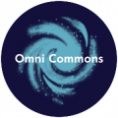
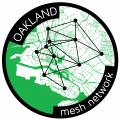
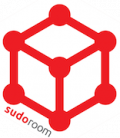
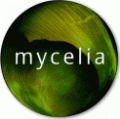
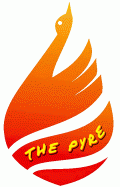



 Sudoer Tracy declares our Intent to Exist.
Sudoer Tracy declares our Intent to Exist.